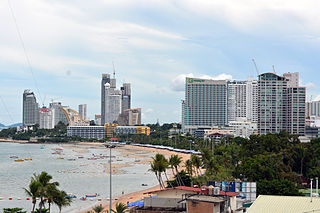
For September, it noted: “Private consumption expanded and the tourism sector improved gradually. Public spending, particularly public investment, improved following expedited disbursement at the end of fiscal year. On the other hand, private investment remained subdued. Merchandise exports remained weak, as did manufacturing production in export-oriented industries,” it noted.
On Thailand’s merchandise exports and imports, values improved in almost all major product categories after contracting in the previous period. Merchandise exports expanded 3.9 percent from last month. However, overall exports recovery remained sluggish as slow global economic recovery and Thailand’s inability to capitalize on the current global electronic cycle weighed on exports performances.
The value of exports in the first nine months of the year contracted 0.7 percent from the same period last year. Merchandise imports expanded across the board due to increases in imports of capital goods, raw materials and intermediate goods, and consumer goods as well as expedited gold imports on account of lower global gold prices.
Weak global demand caused export-oriented manufacturers, particularly those of hard disk drives, to temporarily reduce production levels to run down stocks. Thus, overall manufacturing production decreased from the previous month. Nevertheless, excluding hard disk drives, production in most industries such as in food and beverages, air-conditioners, textiles and apparels expanded in line with domestic spending recovery.
As for private investment, activity flattened from the previous month both in construction and machinery and equipment. Overall demand remained below its normal trend, in particular exports which gained additional risks from the slow recovery in global economy. This resulted in excess capacity in several industries. Thus, investment for expanding production capacity remained low with most investment still geared towards enhancing production efficiency.
Meanwhile, from July to September, “overall economic activity in the third quarter of 2014 recovered at a slow pace and not in all economic sectors,” said the BOT official statement released October 31.
The value of merchandise exports for the period contracted as a result of weak global demand, particularly from European countries, Japan, and the Middle East, technological constraints, and longer-than-usual maintenance shutdown of refineries, said BOT.
“Overall manufacturing production was flat due mainly to precarious recovery of both domestic and external demand as well as inventory destocking in some industries.”
Thailand makes bigger strides in ease of doing business
Still, the country remains among the top 30 economies worldwide and second among emerging economies of East Asia in the ease of doing business, based on a new World Bank Group report.
Doing Business 2015: Going Beyond Efficiency finds that Thailand further improved its business environment over the past year to propel its ranking from 28th in last year’s Doing Business report to 26th in this year’s report.
The report finds that Thailand ranks among the top 30 economies in the world in five areas: dealing with construction permits (at 6th in the global ranking), getting electricity (12th), protecting minority investors (25th), enforcing contracts (25th), and registering property (28th). And the report recognizes that in 2013/14, Thailand made dealing with construction permits less time-consuming by introducing a fast-track approval process for building permits for smaller buildings.
“Through its public service improvement program over the past 10 years, Thailand has implemented reforms to improve the ease of doing business. This has benefited local entrepreneurs, who now have fewer regulatory hurdles to deal with and more resources to focus on their business,” said Ulrich Zachau, Country Director for Thailand, World Bank Group.
“Thailand has also used technology to improve the regulatory environment for businesses. For example, the use of electronic systems has reduced both the number of documents and the time needed for exporting and importing by almost half since 2007.”
Photo: WPPilot









